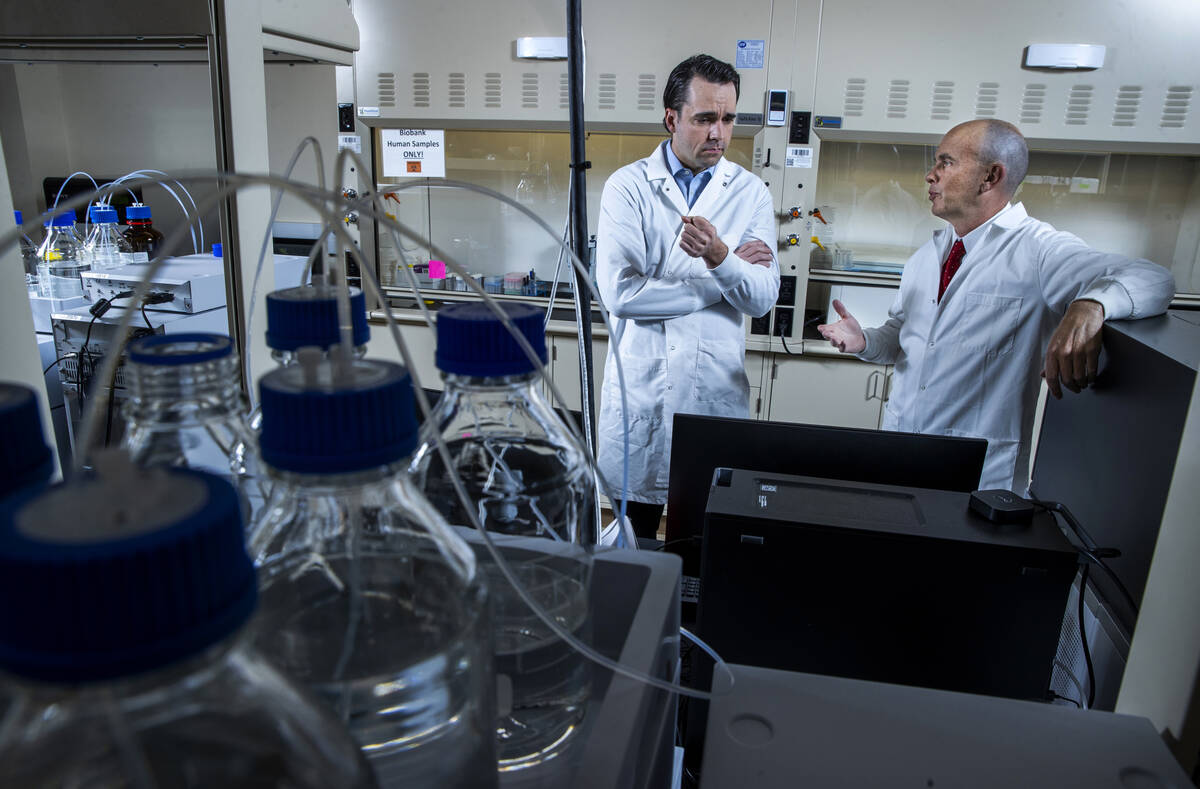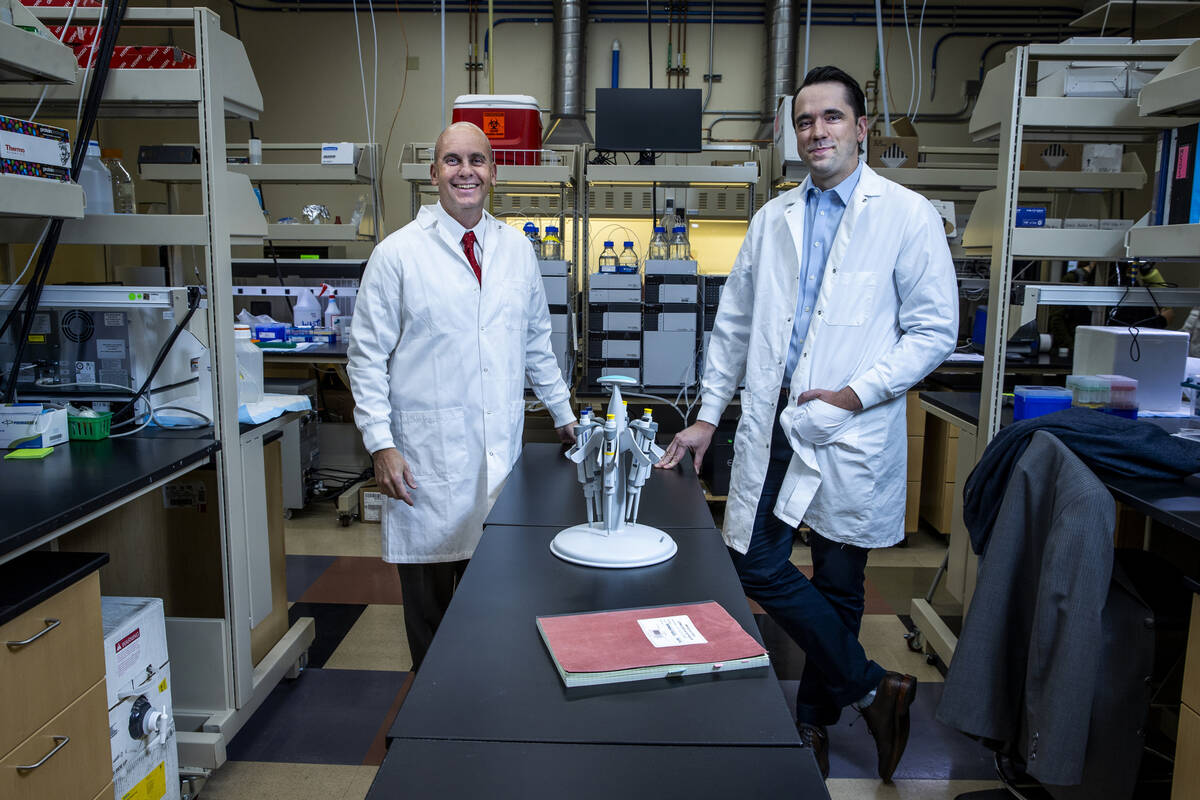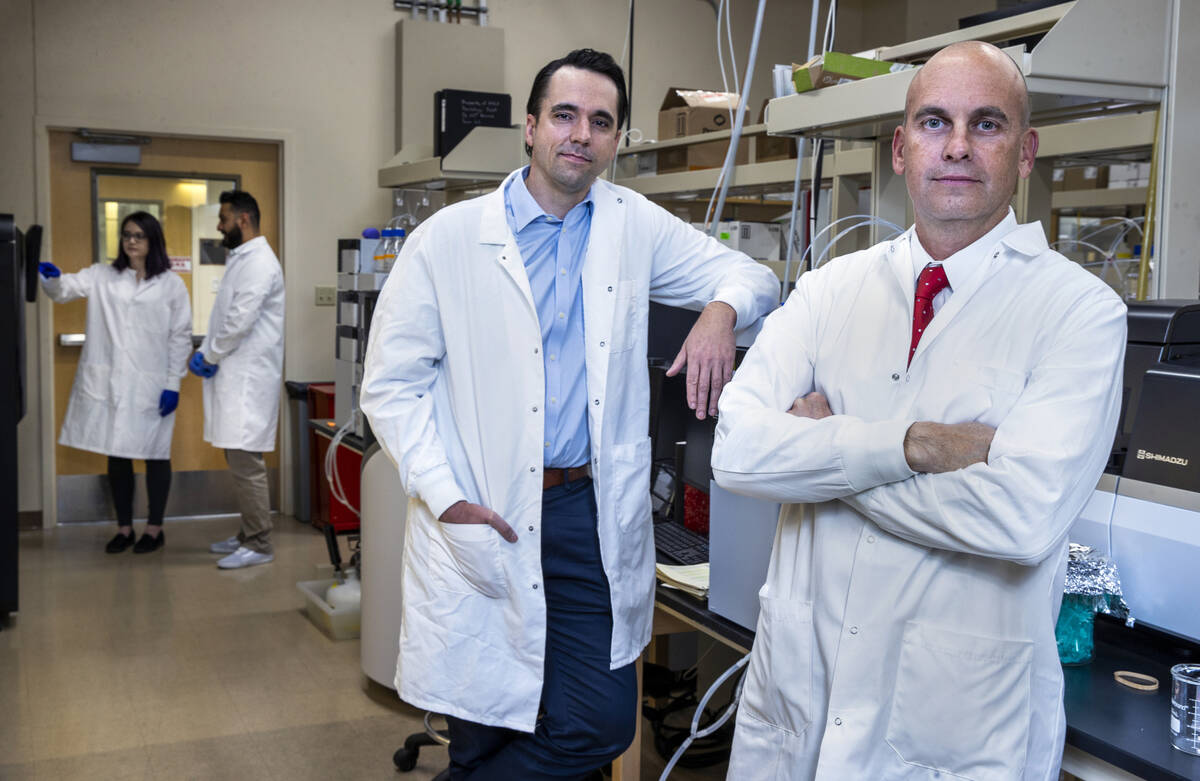UNLV, Ruvo Center receive $11.3M to study brain diseases
UNLV and the Cleveland Clinic Lou Ruvo Center for Brain Health have received an $11.3 million federal grant for the next phase of their joint research into the causes of degenerative brain diseases such as Alzheimer’s and potential treatments.
The university and clinic have received five more years of funding from the National Institutes of Health to support Southern Nevada’s first Center of Biomedical Research Excellence (COBRE): The Center for Neurodegeneration and Translational Neuroscience.
This center “puts a footprint in place to support really strong research while developing the next generation of researchers,” said Jefferson Kinney, founding chair of UNLVs Department of Brain Health.
The award of the grant will be formally announced on Thursday.
The center mixes “different methods, different approaches and different expertise” to better understand neurodegenerative diseases,” said Kinney, director of the Translational Biomarker Discovery Laboratory at UNLV.
The model has led to “really novel discoveries” Kinney said, including in the area of biological markers, such as proteins in the blood, that signal disease and whether treatment is working.
Knowledge about these biomarkers assists in diagnosing and treating a neurodegenerative disease such as Alzheimer’s or Parkinson’s, for which there isn’t a clear disease marker the way there is for hypertension, for example, where a simple test can determine if blood pressure is elevated.
Through better understanding of the causes of neurodegenerative diseases, researchers come closer to finding treatments and even cures.
With Alzheimer’s disease, how “pathologies start, and how they progress, is still a question we don’t know the answer to,” Kinney said.
Advancing young scientists
COBRE grants are designed to support faculty development and research infrastructure in states with historically lower levels of support from the National Institutes of Health.
“The COBRE’s real, primary focus is to advance young scientists towards a goal of being independent researchers,” said the Ruvo Center’s Dr. Aaron Ritter.
Research that began during the first phase of the COBRE grant has spun out into further investigation into the role of inflammation in brain diseases and differences between genders in how these diseases develop, he said.
“We have to keep bringing in young people but also bringing in people with different backgrounds and different ideas about how the brain works,” said Ritter, who leads the COBRE project for the Ruvo Center.
A key focus of this next phase will be to expand the diversity of patients and other community members who participate in the research, some 200 people so far, he said.
Ritter noted that the COBRE award reflects a shift that has taken place in Southern Nevada. In its infancy, the Ruvo Center, founded in 2009, was “entirely funded by the collective goodwill of the people of Las Vegas” through philanthropic gifts.
“When we started this grant, there was no medical school,” Ritter said. “And now we have not only a medical school, we have a department of brain health at UNLV.
“So I think this is a bigger reflection of the advancements that Southern Nevada has had when it comes to Alzheimer’s disease research.”
Contact Mary Hynes at mhynes@reviewjournal.com or 702-383-0336. Follow @MaryHynes1 on Twitter.

























